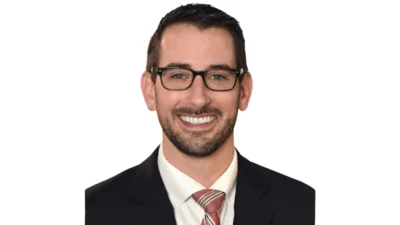Gov. Bruce Rauner highlighted the measures he says will help the state achieve a balanced budget, both now and in the long term, to Rockford residents gathered at the Machine Shed restaurant recently.
Rauner's stop was part of a two-day state tour during which he also visited suburban Chicago, Peoria, Springfield, Quincy, Marion, Robinson and East Alton. At each city he pushed for a balanced budget achieved through reforms that would reduce government spending, as opposed to increasing and adding taxes to raise revenue.
"I don't want to accept the argument that some Dems say that we'll never have a balanced budget, we should just do stopgap spending plans, short-term spending plans with no structural changes," Rauner said in Rockford, according to Rockford station WREX. "All that means is more deficit spending; that means we're going to have more debt, and that means that someday there's going to be a big tax hike on the people of Illinois."
Rauner said that while Democratic lawmakers are pushing for a budget that maintains current services through increased revenue, Republicans are opposed. He argued that raising taxes without putting significant reforms in place will only lead to higher taxes in the future.
Instead, Rauner pushed for measures included in his "Turnaround Agenda" to close the state’s current $6 billion deficit. He wants term limits for state politicians and reform of the way the state’s voting districts are drawn up. He also wants to see local government consolidation to reduce or merge some of the state’s 7,000 units of local government -- by far the most of any state.
Rauner is also proposing a property tax freeze that would prevent any hike in rates unless approved by local voters. Further, he would like reforms that would make it easier for businesses to operate in Illinois.
According to Rauner, Illinois has lost approximately 300,000 manufacturing jobs over the past 17 years and has not posted any net job growth. The state also saw government spending increase by 66 percent in that period. The lack of job growth cannot be entirely explained by economic trends, as Illinois has a lower rate of job growth than any of its neighboring states.
Throughout the tour, Rauner emphasized the need for economic growth for Illinois to have a healthy, balanced budget moving forward. Illinois has not had a permanent budget in more than 20 months, and state lawmakers in the General Assembly are currently working to negotiate a budget agreement before May, the next budget deadline.
Rauner noted his willingness to work with Democrats to come to a compromise on the budget, saying on some tour stops that he would be willing to take individual measures like the property tax freeze or term limits off the table. But he remained firm that he would not accept a budget agreement that does not put significant reforms in place to ensure that government spending is curbed and that the state becomes more business-friendly.
Rauner, who has not yet announced a 2018 bid for re-election, has drawn some criticism from opponents for his two-day tour. They classified the tour as a campaign event and argued that Rauner should instead be focusing on the problems at hand. For his part, Rauner insisted that the tour, paid for through his campaign fund, was a political event and opportunity to talk to residents directly about the state’s budget woes.
.jpg)




 Alerts Sign-up
Alerts Sign-up